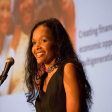Equality Speakers
You scroll through speaker lists, but none of them seem to get it.
You need someone who can talk about equity and inclusion without sounding rehearsed. Someone real.
But how do you find the right equality speakers who actually connect with your audience? Not just anyone with a polished bio or buzzwords.
Equality speakers bring more than talking points - they bring lived experience, insight, and clarity.
Whether you're planning a panel, building a podcast guest lineup, or organizing a company event, the right voices matter.
The ones who can speak across differences, challenge assumptions, and invite everyone in.
I've seen how the best equality speakers shift the tone of a room - not by preaching, but by sparking real conversations.
Here, you'll find a curated list of equality speakers who know their stuff and know how to deliver it.
Explore the speakers featured below or book someone now for your next event, podcast, or show.
Top Equality Speakers List for 2026
Di Kersey
I help midlife women who feel invisible reclaim their voice, presence, and influence, and be the echo of every voice that was never heard.
Sharon Crossett
Empowering women to get unstuck and find harmony and success through personalised coaching.
Rikki Arundel
Award winning Keynote and virtual Speaker, Speaking/TEDx/Storytelling Coach and Gender and LGBTQ Inclusion expert.
Eugene Manley, Jr.
Engineer-turned-cancer scientist building bold solutions for cancer equity and diverse STEMM pipelines.
Elyssa Jechow
Big questions. Brave ideas. A fresh take on success.
Maggie Anderson, JD, MBA
My painful, powerful year 'Buying Black' & how consumers and corporations create jobs, wealth, hope, and role models in hurting communities.
Tameka Citchen-Spruce
Inspiring change, one voice at a time.
Jett Gillespie Paverd
Mom, partner, CEO, teacher, mentor, friend... I don't juggle roles. I just toss them in the air and hope none of them hit me in the face.
Angela Parkinson
Helping Business Owners with their Exit Options
Karim El-Ayoubi
Economist, entrepreneur and author working to create a better life for all
What Makes a Great Equality Speaker
Take someone like Kimberlé Crenshaw. She doesn't just speak about intersectionality - she coined the term. Her talks are layered, drawing from legal theory, lived experience, and cultural context. That's what makes a great equality speaker: they bring depth, not just data. They're educators and storytellers rolled into one.
But it's not just about credentials or charisma. Great equality speakers are also great listeners. They understand the communities they speak for and speak to. Whether it's a corporate DEI event in London or a youth-led summit in Nairobi, they tailor their message to resonate without watering it down.
And finally, there's authenticity. Audiences can spot performative activism a mile away. The best equality speakers are those who walk the talk - whether they're grassroots organizers, corporate consultants, or academic leaders. They don't just speak for equality... they live it.
How to Select the Best Equality Speaker for Your Show
1. Define Your Objectives.
- Are you aiming to educate, inspire, challenge, or all three? Be clear on your goals.
- For example, a corporate podcast might want a speaker who can translate systemic inequality into actionable workplace strategies, while a youth-focused event might prioritize relatability and storytelling.
2. Know Your Audience.
- Consider demographics, cultural context, and familiarity with equality topics.
- A speaker who resonates with a Gen Z audience in New York might not land the same way with a rural leadership group in Australia.
3. Research Speaker Profiles.
- Use platforms like Talks.co to explore speaker pages with bios, past talks, and reviews.
- Look for speakers who've addressed similar audiences or themes. Diversity of experience is a bonus.
4. Watch or Listen to Past Talks.
- Don't rely on written bios alone. Watch videos or listen to podcast interviews.
- Pay attention to tone, clarity, and how they handle tough questions.
5. Reach Out and Connect.
- Use Talks.co to send a direct inquiry or message. Ask about availability, fees, and customization.
- Be upfront about your show's format, audience size, and expectations.
6. Vet for Alignment.
- Ask about their stance on key issues. Ensure their values align with your platform.
- A quick call can reveal more than a polished one-sheet ever will.
Selecting the right equality speaker isn't just about finding someone who sounds good - it's about finding someone who fits. Do the homework, and your audience will thank you.
How to Book a Equality Speaker
1. Start with a Shortlist.
- Use platforms like Talks.co to browse equality speakers by topic, region, or industry.
- Create a shortlist of 3-5 names that match your theme and audience.
2. Check Availability.
- On Talks.co, many speakers list their availability or have a direct booking calendar.
- If not, send a quick message through the platform with your proposed dates and format.
3. Clarify the Details.
- Be specific: Is it a live webinar, podcast, or pre-recorded summit?
- Include your audience size, expected duration, and whether it's paid or unpaid.
4. Discuss Customization.
- Ask if they can tailor their talk to your theme or audience.
- For example, if your show focuses on tech startups, see if they can speak to equality in venture capital or hiring practices.
5. Confirm the Booking.
- Once aligned, finalize the date, time, and format.
- Use a speaker agreement or confirmation email that outlines expectations, promotion, and deliverables.
6. Promote the Episode.
- Coordinate with the speaker to cross-promote on social media or newsletters.
- Provide them with graphics, links, and hashtags in advance.
7. Follow Up Post-Event.
- Send a thank-you note and share any feedback or audience reactions.
- If it went well, consider inviting them back or referring them to other hosts.
Booking an equality speaker is part logistics, part relationship-building. Do both well, and you'll create a memorable experience for your audience and your guest.
Common Questions on Equality Speakers
What is a equality speaker
At its core, an equality speaker uses their voice to spotlight disparities - whether in race, gender, disability, socioeconomic status, or other areas - and to propose pathways toward more just systems. They might speak at conferences, summits, corporate events, schools, or community forums. Their role is to challenge assumptions, share lived experiences, and offer frameworks for change.
Unlike general motivational speakers, equality speakers are often grounded in research, activism, or professional experience related to social justice. Think of people like Ibram X. Kendi, who combines academic rigor with accessible storytelling, or disability advocate Haben Girma, who brings both personal insight and legal expertise.
Equality speakers can come from any background - law, education, tech, entertainment - but what unites them is a commitment to equity. Some focus on specific issues like LGBTQ+ rights or Indigenous sovereignty, while others take a broader approach to systemic inequality.
In short, an equality speaker isn't just someone with a mic and a message. They're a catalyst for awareness, action, and accountability.
Why is a equality speaker important
One reason equality speakers matter is because they bridge the gap between theory and lived experience. For example, a corporate DEI report might outline disparities in promotion rates, but an equality speaker can humanize those numbers with real stories and practical solutions. That's the kind of insight that sticks.
They also help organizations and communities confront blind spots. Whether it's a startup overlooking accessibility in its product design or a school struggling with racial bias in discipline policies, equality speakers can name the issue and offer a roadmap forward.
In global contexts, equality speakers play a role in cross-cultural understanding. A speaker from South Africa might bring a different lens to gender equity than one from Sweden - and that diversity of perspective is crucial in today's interconnected world.
Ultimately, equality speakers are important because they don't just raise awareness - they raise the standard. They challenge us to do better, not just feel better.
What do equality speakers do
Here's a breakdown of what equality speakers typically do:
- Educate Audiences. They provide historical context, current data, and personal narratives to help audiences understand systemic inequality. Whether it's a workshop on unconscious bias or a talk on Indigenous land rights, education is at the core.
- Facilitate Dialogue. Many equality speakers lead panels, Q&A sessions, or interactive forums. They create safe spaces for difficult conversations, helping audiences move from discomfort to understanding.
- Consult and Advise. Some equality speakers also work as consultants, advising companies, schools, or nonprofits on equity strategies. For instance, they might help a tech firm audit its hiring practices or guide a university through inclusive curriculum reform.
- Advocate for Change. Outside the speaking circuit, many are involved in activism, policy work, or community organizing. Their talks often reflect this on-the-ground experience, making their insights more actionable.
- Tailor Content to Context. A great equality speaker doesn't give the same talk twice. They adapt their message to fit the audience - whether it's a boardroom in Berlin or a youth summit in Manila.
So while their title might suggest they just 'speak', equality speakers actually do a whole lot more - they educate, engage, and empower.
How to become a equality speaker
1. Define Your Equality Message.
- What aspect of equality are you passionate about? Racial justice? Gender equity? Disability rights? Be specific.
- Tip: Use personal experience or professional expertise to anchor your message. Authenticity is key.
2. Build Your Thought Leadership.
- Start writing articles, recording short videos, or hosting webinars on your topic.
- Post consistently on LinkedIn, Medium, or your own blog.
- Example: Talks.co lets you create a speaker page to showcase your expertise and connect with event hosts.
3. Get Speaking Experience.
- Start small: local panels, community events, online summits.
- Reach out to nonprofits, schools, or diversity-focused organizations.
- Tip: Offer to speak for free at first to build your portfolio.
4. Create a Speaker Page.
- Include your bio, topics you speak on, testimonials, and a demo video.
- Platforms like Talks.co make it easy to manage your speaking profile and get discovered by hosts.
5. Network with Hosts and Other Speakers.
- Join speaker communities, attend virtual summits, and connect with event organizers.
- Use platforms like LinkedIn or Talks.co to pitch yourself as a guest.
6. Refine Your Talk and Delivery.
- Practice your talk regularly. Record yourself and get feedback.
- Consider hiring a speaking coach or joining Toastmasters.
7. Start Charging for Your Talks.
- Once you've built credibility and demand, set your rates based on your experience and audience size.
- Pro tip: Package your talk with workshops or consulting to increase your value.
Becoming an equality speaker is about more than just talking. It's about showing up consistently, sharing your truth, and connecting with the right people who need to hear your message.
What do you need to be a equality speaker
First, you need a clear message. Equality is a broad topic, so define your niche. Are you advocating for LGBTQ+ rights in the workplace? Promoting racial equity in education? Fighting for disability inclusion in tech? The more specific your focus, the more powerful your message.
Second, you need lived experience or subject matter expertise. Audiences connect with speakers who bring authenticity. That could be through personal stories, academic research, or years of professional work in DEI (Diversity, Equity, and Inclusion). If you're just starting out, consider volunteering or collaborating with advocacy groups to build your credibility.
Third, you need a platform to share your voice. This includes:
- A speaker page (like on Talks.co) with your bio, topics, and testimonials.
- A demo video showing your speaking style.
- A social presence where you regularly share insights and engage with your audience.
Fourth, you need presentation skills. Equality topics can be sensitive, so you must communicate with empathy, clarity, and confidence. Practice is essential. Join public speaking groups or work with a coach to refine your delivery.
Lastly, you need connections. Speaking opportunities often come through referrals or networks. Use platforms like Talks.co to connect with event hosts, or pitch yourself to conferences and podcasts that align with your message.
In short: clarity, credibility, communication, and connection. That's what sets great equality speakers apart.
Do equality speakers get paid
Many equality speakers start by speaking for free. This helps them build credibility and a portfolio. But once they've established themselves, paid gigs become more common.
Here's a breakdown:
- Corporate Events: Companies often pay well for DEI-focused speakers, especially during events like Pride Month, Black History Month, or International Women's Day.
- Conferences and Summits: Payment varies widely. Some offer honorariums ($250-$1,000), while others pay top speakers $5,000+.
- Nonprofits and Schools: These often have limited budgets, but may still offer small fees or cover travel expenses.
According to SpeakerHub and other industry sources:
- Entry-level speakers may earn $500-$1,500 per talk.
- Mid-level speakers with a strong portfolio can earn $2,000-$5,000.
- High-profile speakers or authors can command $10,000+.
Pros:
- Growing demand for DEI content.
- Opportunities across industries: tech, education, healthcare, government.
Cons:
- Inconsistent income.
- Some organizations expect free talks in the name of 'awareness'.
Bottom line: Yes, equality speakers get paid, but it takes time to reach consistent, high-paying gigs. Building your brand and leveraging platforms like Talks.co can help accelerate that journey.
How do equality speakers make money
1. Paid Speaking Engagements
- This includes keynotes, panels, workshops, and webinars.
- Corporations often pay premium rates for DEI-focused talks, especially during awareness months.
2. Workshops and Trainings
- Many equality speakers offer in-depth training sessions for HR teams, leadership groups, or entire organizations.
- These can be one-off sessions or multi-week programs.
3. Consulting Services
- Some speakers also work as DEI consultants, helping companies audit policies, improve hiring practices, or build inclusive cultures.
4. Books and Publications
- Publishing a book can boost credibility and create passive income.
- Example: Ijeoma Oluo's 'So You Want to Talk About Race' became a bestseller and led to more speaking opportunities.
5. Online Courses and Memberships
- Platforms like Teachable or Kajabi allow speakers to package their knowledge into on-demand content.
- Some also run paid communities or masterminds.
6. Sponsorships and Brand Partnerships
- Speakers with a strong online presence may partner with brands that align with their values.
- Example: Collaborating with companies during Pride Month or Black History Month.
7. Virtual Summits and Events
- Hosting your own event can generate income through ticket sales, sponsorships, or upsells.
The key is to think beyond the stage. Equality speakers who treat their work like a business tend to build more sustainable income over time.
How much do equality speakers make
1. Entry-Level Speakers
- Typically earn $250 to $1,500 per talk.
- Often speak at schools, local events, or nonprofit gatherings.
- May supplement income with part-time consulting or workshops.
2. Mid-Level Speakers
- Earn between $2,000 and $5,000 per engagement.
- Speak at corporate events, national conferences, or industry summits.
- Often have a published book, podcast, or strong online presence.
3. High-Profile Speakers
- Can command $10,000 to $50,000+ per keynote.
- Often include bestselling authors, TED speakers, or media personalities.
- Example: Kimberlé Crenshaw, known for coining 'intersectionality', is a highly sought-after speaker in academic and corporate circles.
Here's a quick comparison table:
| Speaker Level | Typical Fee Range | Common Clients |
|---|---|---|
| Entry-Level | $250 - $1,500 | Schools, nonprofits |
| Mid-Level | $2,000 - $5,000 | Corporations, summits |
| High-Profile | $10,000 - $50,000+ | Fortune 500s, global forums |
- Your niche (e.g., racial justice vs. gender equity)
- Your platform (e.g., Talks.co profile, social media reach)
- Your location (rates vary globally)
So how much do equality speakers make annually? It depends on how many gigs they book and how diversified their income streams are. A part-time speaker might earn $10K-$30K per year. A full-time, in-demand speaker could make six figures or more.
How much do equality speakers cost
Cost Ranges by Speaker Type
- Emerging Speakers: $250 - $1,500.
- Often local activists, educators, or new voices.
- Great for community events or grassroots organizations.
- Experienced Professionals: $2,000 - $7,500.
- These speakers have a track record of impactful talks.
- Ideal for mid-sized conferences, universities, or corporate ERGs.
- High-Profile Experts: $10,000 - $50,000+.
- Includes bestselling authors, TED speakers, or public figures.
- Often booked for global summits or Fortune 500 keynotes.
Additional Costs to Consider
- Travel and accommodation (unless virtual).
- Customization fees for tailored workshops.
- Licensing fees if you want to record or reuse the content.
Tips for Booking Within Budget
- Use platforms like Talks.co to find speakers who match your budget and values.
- Consider virtual events to save on travel.
- Book early-rates can spike during peak months like February (Black History Month) or June (Pride Month).
Equality speakers are an investment in culture, education, and change. The cost reflects not just their time, but the years of lived experience, research, and emotional labor they bring to the stage.
Who are the best equality speakers ever
- Dr. Martin Luther King Jr.
- Iconic civil rights leader known for 'I Have a Dream'.
- His speeches remain foundational in the fight for racial justice.
- Malala Yousafzai
- Nobel Peace Prize winner and advocate for girls' education.
- Her courage and clarity have made her a global voice for gender equality.
- Maya Angelou
- Poet, author, and speaker who addressed race, identity, and resilience.
- Her poem 'Still I Rise' continues to empower marginalized voices.
- Nelson Mandela
- Anti-apartheid revolutionary and former President of South Africa.
- His speeches on reconciliation and justice are studied worldwide.
- Gloria Steinem
- Feminist icon and co-founder of Ms. Magazine.
- Known for her powerful talks on women's rights and intersectionality.
- James Baldwin
- Writer and speaker whose insights on race, sexuality, and identity remain deeply relevant.
- Angela Davis
- Scholar and activist who speaks on prison reform, racial justice, and feminism.
- Desmond Tutu
- South African bishop and human rights advocate.
- Known for his work on truth and reconciliation.
- Sojourner Truth
- Former slave turned abolitionist and women's rights speaker.
- Her 'Ain't I a Woman?' speech is legendary.
- Audre Lorde
- Poet and speaker who explored the intersections of race, gender, and sexuality.
These speakers didn't just talk about equality-they lived it. Their words continue to influence movements and inspire action across the globe.
Who are the best equality speakers in the world
- Ijeoma Oluo (USA)
- Author of 'So You Want to Talk About Race'.
- Known for her accessible, powerful talks on systemic racism and intersectionality.
- Munroe Bergdorf (UK)
- Transgender activist and model.
- Speaks on race, gender identity, and LGBTQ+ inclusion.
- Verna Myers (USA)
- VP of Inclusion Strategy at Netflix.
- A dynamic speaker on unconscious bias and workplace equity.
- Dr. Shola Mos-Shogbamimu (UK/Nigeria)
- Lawyer, author, and political commentator.
- Known for her unapologetic stance on racism and sexism.
- Haben Girma (USA/Eritrea)
- Deafblind disability rights advocate and Harvard Law graduate.
- Speaks globally on accessibility and inclusion.
- Tarana Burke (USA)
- Founder of the #MeToo movement.
- Her talks focus on sexual violence, healing, and empowerment.
- Dylan Alcott (Australia)
- Paralympian and advocate for people with disabilities.
- Uses humor and storytelling to challenge stereotypes.
- Anuradha Koirala (Nepal)
- Founder of Maiti Nepal, fighting human trafficking.
- A powerful voice for women's rights in South Asia.
- Laverne Cox (USA)
- Actress and transgender rights advocate.
- Combines pop culture influence with deep activism.
- Sisonke Msimang (South Africa/Australia)
- Writer and speaker on race, identity, and belonging.
- Her TED Talk 'If a story moves you, act on it' is a must-watch.
These speakers are shaping the future of equality-on stages, in boardrooms, and across digital platforms. Whether you're hosting a summit or curating a panel, these voices bring depth, clarity, and global relevance.
Common myths about equality speakers
1. Myth: Equality speakers are only relevant in social justice or nonprofit spaces.
This is a narrow view. Equality speakers are increasingly being invited into corporate boardrooms, tech summits, and even sports leadership conferences. Take Vernā Myers, VP of Inclusion Strategy at Netflix-she's spoken at everything from legal associations to entertainment expos. Equality is a cross-industry issue, and the demand for speakers who can address it in context is growing.
2. Myth: They only talk about race or gender.
Equality speakers cover a wide spectrum: disability rights, LGBTQ+ inclusion, ageism, neurodiversity, and more. For example, Caroline Casey, founder of The Valuable 500, focuses on disability inclusion in business. Her talks go beyond awareness-they challenge CEOs to take measurable action.
3. Myth: You need to have a marginalized identity to be an equality speaker.
While lived experience adds depth, allyship and expertise matter too. White men like Tim Wise have built careers speaking on anti-racism, using research and historical context to educate audiences. What matters is authenticity, knowledge, and the ability to connect.
4. Myth: Equality speakers are always confrontational or political.
Not true. Many use storytelling, humor, or data-driven insights to engage audiences. Speakers like Brené Brown, while not always labeled as 'equality speakers', often address power, privilege, and vulnerability in ways that resonate across political lines.
5. Myth: It's a saturated field-there's no room for new voices.
The opposite is true. Organizations are actively seeking diverse perspectives, especially from underrepresented regions and communities. If you bring a unique lens or lived experience, there's space for you. The key is to find your niche and speak with clarity and confidence.
Case studies of successful equality speakers
Then there's Eddie Ndopu, a South African disability rights advocate who has spoken at the UN and collaborated with global brands. Born with spinal muscular atrophy, Eddie uses his platform to challenge assumptions about ability and leadership. His talks are part inspiration, part strategy-he doesn't just tell stories, he offers frameworks for inclusion.
In the corporate world, Michelle Kim, CEO of Awaken, has carved out a space as a speaker who bridges DEI theory with business outcomes. Her sessions with tech companies and startups focus on actionable equity strategies, not just feel-good moments. She's proof that equality speakers can be both empathetic and data-savvy.
And don't overlook grassroots voices. In rural India, transgender activist Kalki Subramaniam has used public speaking to change local policies and perceptions. Her talks blend poetry, personal narrative, and legal knowledge to push for trans rights in conservative communities.
Each of these speakers took a different path. Some started with viral blog posts, others with academic research or activism. What unites them is clarity of message, consistency, and the ability to adapt their voice to different audiences-from government panels to high school classrooms. That's the real power of a successful equality speaker: they meet people where they are, then move them forward.
Future trends for equality speakers
First, we're seeing a rise in intersectional storytelling. Audiences are no longer satisfied with single-issue narratives. They want to understand how race, gender, class, disability, and geography intersect. Speakers who can weave these threads into compelling, nuanced talks are in high demand.
Second, virtual and hybrid formats are no longer just a pandemic workaround-they're a permanent part of the speaking ecosystem. This means equality speakers can reach global audiences from anywhere. But it also means upping your game with digital delivery: think interactive tools, real-time Q&A, and platform-specific content.
Third, corporate accountability is becoming a hot topic. Companies aren't just hiring speakers for awareness-they want guidance on metrics, audits, and policy change. Equality speakers who can speak the language of business (KPIs, ROI, compliance) are getting booked more often.
Fourth, youth-led movements are creating space for younger speakers. Think of climate activist Vanessa Nakate or gender equity advocate Malala Yousafzai. Gen Z audiences want peers on stage, not just experts. This opens doors for emerging voices who bring fresh energy and digital fluency.
Key trends to watch:
- More demand for speakers who can address AI bias and tech ethics.
- Growth in regional speaker circuits in Asia, Africa, and Latin America.
- Increased use of data storytelling and infographics in presentations.
- Collaborations between equality speakers and content creators on platforms like TikTok and YouTube.
The bottom line? The future belongs to equality speakers who are flexible, tech-savvy, and deeply informed. If you're building your voice now, you're right on time.
Tools and resources for aspiring equality speakers
1. Talks.co. A smart platform that matches podcast hosts with relevant guests. If you're looking to build your authority and get your message out, this is a great place to start. Tip: Focus on niche podcasts that align with your topic-quality over quantity.
2. SpeakerHub. A global directory for speakers of all kinds. Create a detailed profile, upload your speaking reel, and apply for listed opportunities. Bonus: they offer free resources on pricing, contracts, and branding.
3. Canva. For creating visually engaging slide decks. Equality topics often involve data and storytelling-Canva helps you do both without needing design skills. Use their templates to build inclusive, accessible presentations.
4. Airmeet. A virtual event platform that's speaker-friendly. If you're hosting your own webinars or summits, Airmeet gives you tools for networking, breakout rooms, and audience engagement. Great for building your own stage.
5. The Diversity Gap Podcast. Hosted by Bethaney Wilkinson, this show explores the gaps between good intentions and real change. Listening to other equality leaders can help you refine your voice and stay current.
6. Google Scholar. Not just for academics. Use it to back up your points with credible research. Equality speakers who cite studies and data tend to stand out-especially in corporate or policy-driven settings.
7. Miro. A collaborative whiteboard tool. Use it during workshops or interactive sessions to map out inclusion strategies with your audience. It's especially useful for virtual facilitation.
8. LinkedIn Creator Mode. Turn on Creator Mode to grow your audience and showcase your speaking clips. Post short videos, share insights, and engage with DEI conversations. It's your digital resume and stage all in one.
Whether you're just starting out or looking to scale, these tools can help you build a strong foundation. Combine them with clarity of message and consistent outreach, and you're well on your way.









